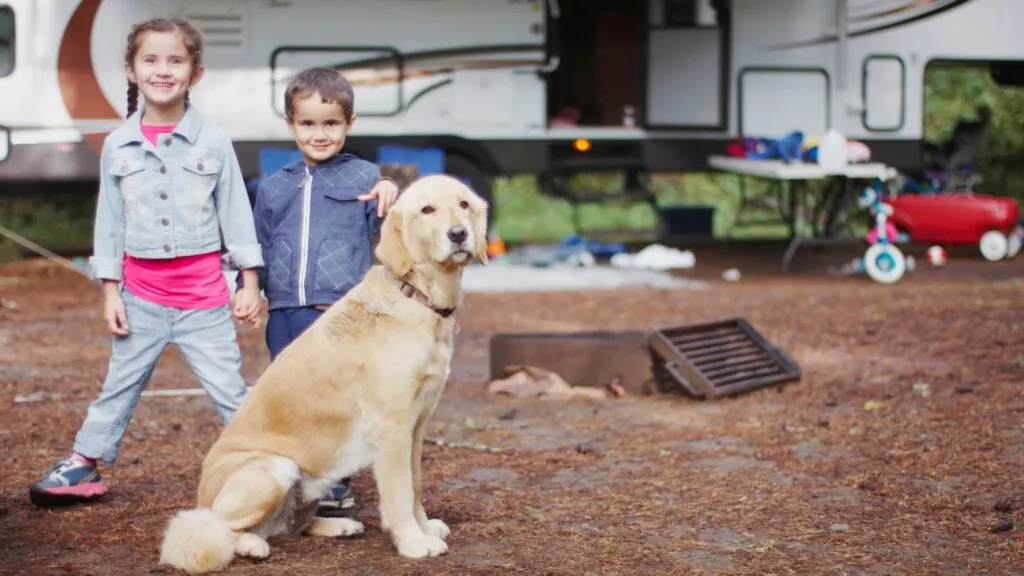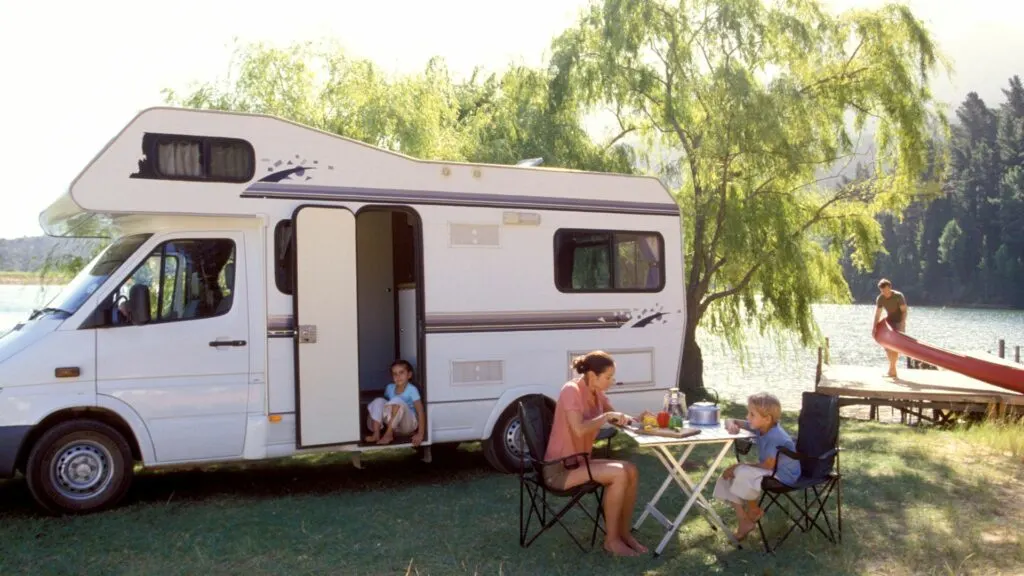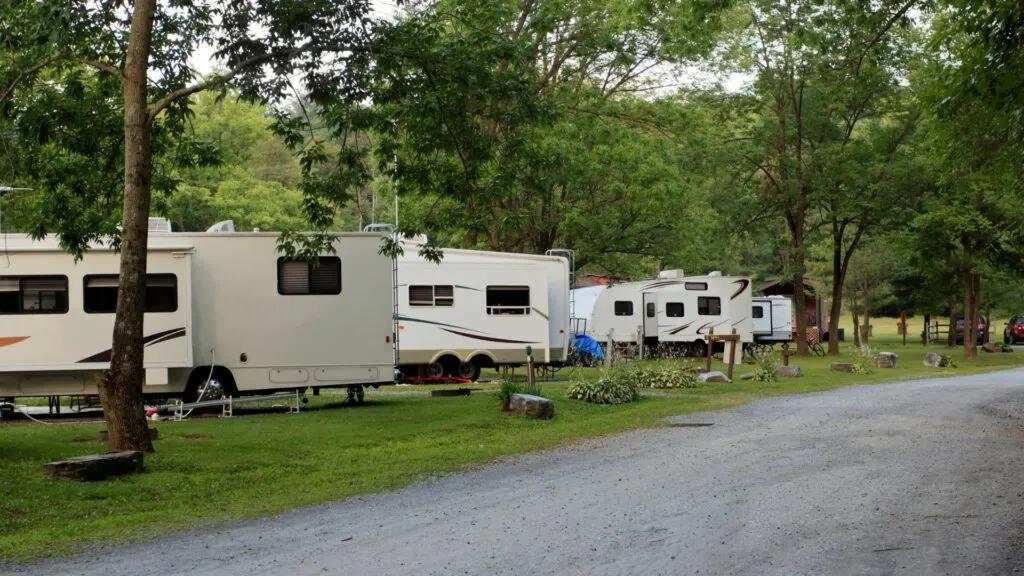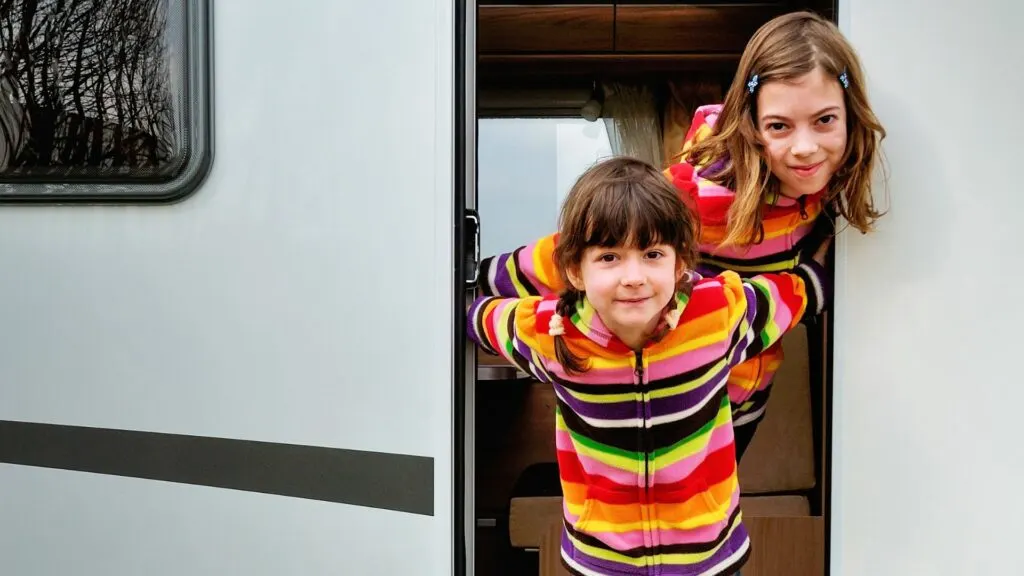RVing isn’t just about adventure—it’s also an excellent way for kids to learn while traveling. Combining real-world experiences with modern technology, RV life can enrich children’s education in ways traditional classrooms often can’t. From exploring national parks to using virtual learning platforms, kids can continue their education no matter where the road takes them. Here’s how kids can thrive educationally while RVing.

1. Geography and Mapping Skills
Traveling from one location to another helps children understand geography in a hands-on way. While planning routes, children can learn how to read maps, calculate distances, and discover different regions of the country. As they visit new destinations, they will gain an understanding of diverse landscapes, climates, and ecosystems. RVing is a great opportunity to teach kids about navigation, the importance of landmarks, and even the use of technology like GPS.
2. Virtual Learning: Staying Connected to School
Thanks to advancements in virtual learning, children can keep up with their education no matter where they are. Many RVing families rely on online learning platforms, educational apps, and video conferencing tools to ensure kids stay connected with their schools or homeschooling curriculums. Whether they’re completing assignments, attending virtual classes, or participating in interactive lessons, kids can continue their formal education on the road. The flexibility of virtual learning allows students to balance their academic responsibilities with the adventures of RV life.
3. History Comes to Life
RVing allows kids to experience history firsthand. From visiting Civil War battlefields to touring colonial villages, they can step into the past and gain a deeper understanding of historical events and figures. This direct interaction with history helps bring classroom lessons to life, making learning more memorable. Museums, monuments, and cultural heritage sites can spark meaningful discussions and foster critical thinking about how the past shapes the present.

4. Science in the Outdoors
The natural world becomes a child’s outdoor classroom when RVing. From observing wildlife to stargazing, there are endless opportunities for scientific exploration. Whether it’s learning about ecosystems in national parks, studying geology in desert landscapes, or conducting water quality experiments in lakes and rivers, kids can engage in hands-on scientific inquiry. Nature walks and hikes offer the perfect setting to discuss biology, ecology, and environmental conservation.
5. Practical Life Skills
RVing naturally teaches children important life skills that go beyond academic subjects. Kids can learn how to help with setting up the RV, maintaining the vehicle, and managing resources like water and electricity while on the road. They can also develop responsibility by participating in tasks such as meal planning, cooking, and cleaning. These practical lessons build independence and problem-solving skills, preparing kids for real-world challenges.
6. Math on the Road
RV life presents numerous opportunities to practice math skills in real-world settings. From budgeting fuel expenses to calculating travel times and distances, kids can sharpen their arithmetic and problem-solving abilities. Activities like managing a travel budget or keeping track of RV maintenance costs can be great ways to introduce financial literacy. These experiences make math relevant and help kids see its application in everyday life.
7. Cultural Awareness and Diversity
RVing exposes children to different cultures, communities, and ways of life. As they visit various regions, kids have the chance to meet new people and learn about local traditions, foods, and festivals. This exposure to diversity helps them develop a broader worldview, greater empathy, and a deeper appreciation for cultural differences. By exploring new places and interacting with others, kids learn valuable lessons in tolerance and inclusivity.

8. Creative and Artistic Exploration
Traveling through picturesque landscapes, historic towns, and vibrant cities can inspire children’s creativity. Encouraging them to document their experiences through photography, journaling, or sketching fosters artistic expression. RVing also offers opportunities for creative writing, storytelling, and even creating video blogs about their adventures. These activities not only enhance creativity but also build communication skills and self-expression.
9. Personalized Learning
One of the greatest benefits of RVing is the flexibility it offers for personalized learning. With the combination of real-world experiences and virtual learning platforms, parents can tailor their kids’ education to their interests and needs. They can integrate online learning with hands-on projects and travel experiences to create a customized curriculum. This allows kids to learn at their own pace, explore subjects they’re passionate about, and engage in experiential learning that suits their individual learning styles.

How RVing with Kids Enhances Education: A Learning Journey on the Road
RVing provides an enriching, dynamic learning environment for kids that blends education, adventure, and personal growth. With virtual learning keeping kids connected to formal education and the road offering real-world experiences, RV life transforms everyday moments into valuable lessons. Whether they’re learning online, exploring nature, or discovering history, RVing offers a unique blend of academic and life education that can spark a lifelong love of learning. So, pack up the RV, hit the road, and let the journey of discovery begin!

Jessi is the creative mind behind The Coffee Mom, a popular blog that combines parenting advice, travel tips, and a love for all things Disney. As a trusted Disney influencer and passionate storyteller, Jessi’s authentic insights and relatable content resonate with readers worldwide.
